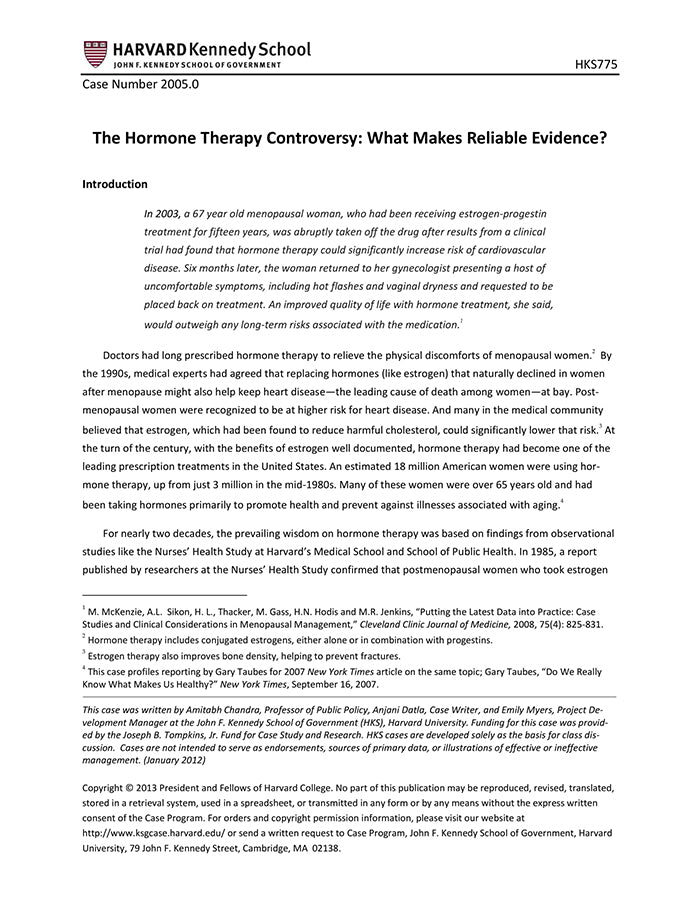The Hormone Therapy Controversy: What Makes Reliable Evidence
受取状況を読み込めませんでした
For nearly two decades, the leading evidence on hormone therapy was based on findings from observational studies like the Nurses' Health Study. In 1985, researchers at Nurses' Health Study confirmed that postmenopausal women who took estrogen had lower rates of heart disease than women who had never taken the hormone. These influential findings helped drive the surge in hormone prescriptions in the 1980s and 1990s. But in 2002, in a stunning turnaround, researchers for a randomized clinical trial called the Women's Health Initiative reported that hormone therapy, in fact, increased the risk of heart disease and stroke among postmenopausal women. Almost overnight, prescriptions for hormone treatment plummeted. For millions of women who were either abruptly taken off hormones or denied treatment, though, the feeling of confusion and anguish remained. At the heart of the hormone therapy controversy was the fact that two different research approaches-observational studies and randomized experiments-had arrived at diametrically opposite results, once again raising questions about what constituted reliable evidence. Case Number 2005.0
【書誌情報】
ページ数:11ページ
サイズ:A4
商品番号:HBSP-HKS775
発行日:2013/11/13
登録日:2014/4/21


